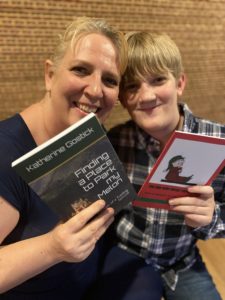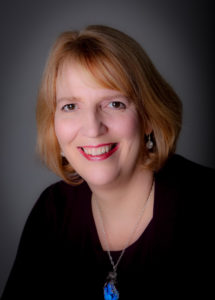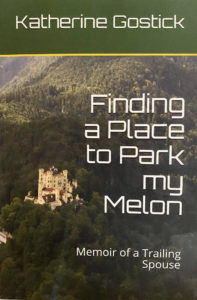By Liz Nolan, Contributing Writer

Southborough – Southborough resident, educator and author Katherine (Kate) Gostick does not see her dyslexia as a hindrance, but as a gift. A gift that has given her stories to write that she wouldn’t have otherwise written and has given her joys that would have been otherwise missing from her life.
In addition to herself, Gostick’s husband and her three sons have dyslexia. She found out as an adult when her second son was being tested. She recalled how when she was younger she was the last student in class to learn to spell her name, was at the bottom of her English class and misread questions on exams.
Originally, no one could read what she had written, but she always loved writing. It took one fantastic English teacher to make the difference for Gostick.
“She really appreciated what I wrote, not how I wrote it down,” she said. “She saw the value in what I had written and gave me the feeling that I could do it. She gave me the confidence to write.”
Gostick has two self-published books available on Amazon. In her writing, she communicates the importance of uniqueness. Dyslexia has brought that uniqueness to her life.
“Being unique is actually a benefit,” she said. “Individuality is such a strength.”
Her children’s book, “The Spy who Saved Christmas – How a Dyslexic Elf Saved the Day,” was written for her kids to let them know that they can do anything. The humorous plot is about Stanley, the dyslexic elf, who must overcome all his difficulties to make sure everyone gets the right present on time when all the other elves become sick. Her son Henry, 13, helped to illustrate it.
“Dyslexia does not bar you from doing anything,” Gostick said. “You will work harder and take longer, but it doesn’t mean you cannot do it.”
October is Dyslexia Awareness month and early detection is important. Gostick said people with dyslexia are known to look at things in a different way, think out of the box to solve problems, and have talents and strengths that go beyond the classroom.
“If I could take away the dyslexia from my kids, I wouldn’t,” she said.
Gostick’s husband has a PhD in Molecular Biology; and she has her masters in reading, is Orton Gillingham trained, and teaches literacy. Her boys have grown up knowing that they can be successful at anything they choose to do and having dyslexia doesn’t hold them back.
“Dyslexia is not a disability; it’s a difference,” she said. “Dyslexia makes you resilient. I fail all the time, every time I write something down I fail. I embrace those failures, because they can be really funny sometimes. You can’t be afraid to try and to make those mistakes.”
Gostick, an England native, moved to Southborough in 2003. Her newest book, “Finding a Place to Park my Melon: a Memoir of a Trailing Spouse”, is based on her family’s experiences while living in Germany for three years due to her husband’s job. The family worked through a European bucket list of adventures, some of which had interesting and funny outcomes. It focuses on her observations of the differences in British, American and German culture.
She uses the metaphor of fruits (peaches, melons and coconuts) to compare how people integrate and are accepted in different cultures. The book is meant to be a trigger to reflect on what is valued in different cultures, such as uniformity or individuality.
Her advice to new writers is to just write and believe in yourself.
“No one else is going to believe in you, except for yourself,” she said “You gain nothing from it if you try nothing. There’s nothing to lose.”
(Photos/Submitted)



















